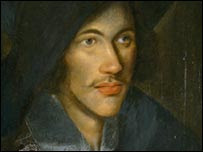After several months, having escaped his captors, Moshe returns and tells how the deportation trains were handed over to the German secret police at the Polish border. There the Jews were forced to dig mass
graves for themselves and were killed by the Gestapo. The town thinks he is crazy refuses to believe his story. The town keeps on hearing news of the Nazi army, they didn't think the Germans stood a chance. News from Budapest warns that fascism is on the rise. Although a villager returns from the capital with news of anti-Semitism, optimism continues to prevail. But suddenly the army is rolling through town, and still everything seems okay to the people of Sighet. Then series of increasingly oppressive measures are forced on the Jews—the community leaders are arrested, Jewish valuables are confiscated, and all Jews are forced to wear yellow stars. Eventually, the Jews are confined to small ghettos, crowded together into narrow streets behind barbed-wire fences to await departure.
By 4 A.M., families are preparing food for the journey. At 8 A.M., Hungarian police order Jews outside police club anyone moving to slowly. Within two hours, all Jews stand in the streets. By 1 P.M., the first convoys begin their march out of Sighet. On Thursday, the Wiesels anticipate deportation. To their relief, they are forced to move into the small ghetto. Elie leads the way; his father weeps. The small ghetto is littered with possessions that the first deportees abandoned in turmoil. The Wiesels move into Elie's uncle's rooms for four nights. At dawn on Saturday, after a wretched Friday night packed in the synagogue with the remaining Jews, the Wiesels join the last deportees to board railway cattle cars.
This is the trailer of "Jacob the Liar," with Robin WIlliams this is a brief example of some of the conditions Jews had to face in some Ghettos.
Quote:
"That was when I began to hate them, and my hatred remains our link today. They were our first oppressors. They were the first faces of hell and death." -page 19
Reaction:
This quote makes us think: How can we relate to the people of this era? this quote tells us how, by the repulsion and anger at the people who committed such terrible acts. Wiesel also shows us how, in this case, the Hungarian police were their first attackers, their first enemies, their first foreshadowing of events to come.
Visit:HOLOCAUST/TIMELINE To learn more about the ghettos


Excellent, Kirk. You went the extra mile and put a video in your post, along with pictures and a solid summary of the chapter. Good job.
ReplyDeleteI couldn't agree with Bret anymore..You had everything necessary to make this a solid blog post..congrats
ReplyDelete